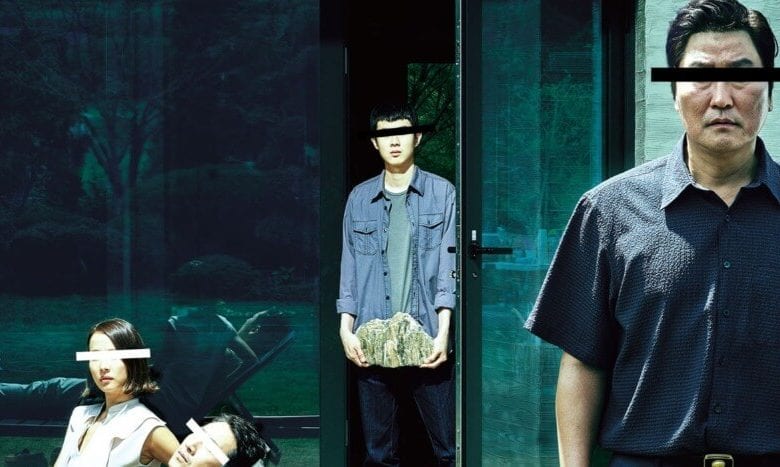
The less you know about the plot of “Parasite” going in, the better.
Here is a spare and spoiler-free plot description:
A young man named Kim Ki-woo (an engaging Choi Woo-sheik) lives with his family in South Korea in a state of poverty; they endure patrons urinating outside their loft and assemble pizza boxes for a local business in order to keep money coming in.
A random opportunity arises when Kim Ki-woo talks his way into the rich household of the Park family, posing as a tutor for their young daughter. Kim Ki-woo finds himself in the trust of the wealthy power couple, who willingly take the young man in and allow him to instruct their obviously infatuated daughter.
Bong Joon-Ho’s wild satire is as troubling as it is unpredictable. Both an eccentric comedy and a dark farce with rich social commentary, “Parasite” is the kind of film that is impossible to get ahead of. The story plays fair but the big turns are unconventional and shocking.
Joon-Ho’s film is commenting on privileged, bourgeoisie indifference – namely, the cruel disregard passed down to those who have less and suffer. In his depiction of two families with opposite financial states, we see how both view the world very differently and, because money dictates their perspective, they lack a full understanding of the big picture.
Director Bong Joon Ho narrates a sequence from #Parasite in his Anatomy of a Scene with @NYTimes. https://t.co/Ar7fyLvaID
— NEON (@neonrated) November 8, 2019
If “Parasite” is lacking something, it’s someone to root for. The characters may be well drawn, but they’re satirical figures and, to varying degrees, savage opportunists. Perhaps by design, my sympathies constantly shifted from scene-to-scene. While the premise had me hooked immediately and I was always engaged with Kim Ki-woo’s journey, I wasn’t always rooting for him, or anyone else.
I think “The Host” is Joon-Ho’s masterpiece, but this one is just as strong and certainly as memorable. As a cinematic storyteller with a sensitivity to the human condition, he’s simply fantastic, creating camera moves and character dynamics that are right out of Alfred Hitchcock.
While I’m especially fond of “The Host,” his thrilling monster movie with an immediate eco-message (and an approach that surpasses every “Pacific Rim” and recent Kaiju revival wannabee), Joon-Ho’s body of work showcases a fearlessness and a willingness to tackle impossible material.
His best known work is “Snowpiercer” and his least liked film is the clever oddity “Okja,” which is excellent pedigree.
“Parasite” is meticulous in its filmmaking and off-putting in its storytelling. For all the doses of insight and satire administered, the third act has more chaos than nuance. It has one of those endings that seems unsure of when to fade to black. Nevertheless, the final scenes contain a poetic quality that nicely tie everything together.
Unlike most films I see every year, this one has lingered in my mind, doing somersaults in my imagination. There are scenes here that are unnerving and display a filmmaker at the top of his craft.
I won’t describe it, but a second act set piece, involving a hardship on a large scale, has been staged with remarkable precision.
The performances are as vivid as the set design, with Cho-Yeo jeong as the tightly wound Mrs. Park, the always great Song Kang-ho as Kim Ki-woo’s father, giving spectacular work.
Perhaps better as a conversation piece than a work most would watch more than once, but Joon-Ho has his finger on the pulse of modern society as his young protagonist has on his infatuated pupil.
“Parasite” has a message that has haunted me as much as the film itself: the quality that keeps us from being a family (in a literal or figurative sense) is empathy. Joon-Ho isn’t saying that those who are wealthy, or poor, are lesser or more than the other, only that there is a lack of understanding one group has for the other, as well as a willing ignorance.
How can we possibly lift one another up or even find common ground if we’re constantly trying to one up each other?
Joon-Ho knows that the guarded heart (as well as a carefully concealed doorway) can only suppress our madness for so long.
Four Stars
